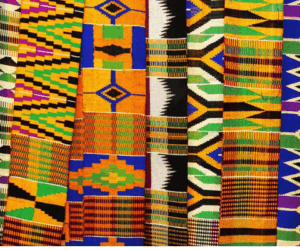In the very competitive retail environment of today, where consumers are more informed and socially conscious than ever, success in business depends not just on what you sell but also on how you sell it. Ethics in marketing and brand management are now a strategic necessity rather than a decorative virtue in developing countries like Nigeria, where customer faith in organisations and brands is still brittle. This necessity has animated a global retail shift toward ethical consciousness. From the notion of fair trade to transparent sourcing of materials, ethical marketing now shapes how customers perceive value.
In Nigeria, critical factors such as the evolution of the middle class, the growth of digital commerce, and growing consciousness of sustainability have produced a consumer base that prioritises affordability coupled with social responsibility, fairness, and honesty. This shift poses a direct question to retail business leaders: Are we marketing products, or are we marketing trust?
It is evident in literature that Nigerian retail has battled trust issues for decades, including fake goods, deceptive advertising, abusive labour practices, and unclear pricing structures. Yet, as competition intensifies and consumers demand authenticity, companies that disregard ethical standards run the danger of damaging their brand and long-term survival. Hence, ethics has become a differentiator between brands in the current retail environment.
Thus, brand image becomes increasingly important, as it becomes the “invisible contract” between businesses and customers. It communicates what a business stands for, the values it defends, and the promises it keeps. Consumers may forgive a late delivery, but they rarely forgive dishonesty. As such, ethical retail marketing builds this contract through transparency, trustworthiness and fairness. When a brand consistently aligns its actions with its declared values, whether in the areas of sourcing, advertising or customer service, consumers develop emotional loyalty to it. Therefore, consumers not only buy products, but they also buy meaning.
Ethical marketing is not merely a mantra for promoting “feel-good” narratives; it demands consistency in purpose. For instance, a business that sources from local vendors but sources cheap and poor-quality products undermines the brand’s credibility. Likewise, a brand that promotes women’s empowerment but pays unfair wages to female workers faces an ethical contradiction. Hence, effective ethical marketing defines how the market perceives a brand’s integrity.
In Nigeria’s retail industry, SMEs account for more than 80 percent of all jobs and a sizable portion of consumer expenditure. However, many of them operate informally and pay little attention to brand creation or marketing ethics. Their operation is often characterised by price wars, misleading packaging, and exaggerated product claims, but there is a silent revolution going on. Consumers in Nigeria today, particularly Gen Z and millennials, are wary of deceptive advertising. They study reviews, evaluate costs, and conduct internet research; as such, they expect ethical behaviour from brands.
It is evident that there are ethical dilemmas in retail practice, which raise some critical questions, like: Should a retailer source cheaper goods from suppliers who exploit labour to stay competitive on price? Should marketers use exaggerated emotional appeals when they know the product cannot fully deliver the promised benefits? Is it ethical to collect and use customer data for targeted advertising without explicit consent, even when it improves marketing efficiency? Each of these questions occasions a decision that carries both ethical and strategic weight. Profit maximisation is often the easy answer, but in the long run, ethics frequently turns out to be the more sensible business approach. The question is whether leaders have the patience to choose reputation over revenue.
Studies have shown that ethical brand perception directly influences purchase intent and willingness to pay a premium. The implication is simple but powerful: ethical credibility has become a measurable business asset. Consider emerging Nigerian brands that practise transparent pricing, fair labour relations, and eco-conscious packaging. These businesses not only attract loyal customers but also position themselves for global competitiveness. Ethical practice reduces reputational risk, strengthens customer retention, and enhances access to investors increasingly guided by ESG (Environmental, Social, and Governance) principles.
Ethical retailing is a source of strategic capital rather than a requirement for compliance. Ethics makes a difference in a market full of comparable products. The most potent marketing tool is still trust, which is earned with constant integrity, equity, and responsibility rather than bought through advertising. Every customer interaction is a moral engagement: product claims must be accurate, discounts transparent, and sustainability messages verifiable. Nigerian retailers can embed ethics through five practices: transparency in sourcing and pricing, fairness to employees and suppliers, authenticity rooted in local values, accountability for mistakes, and purpose alignment with social goals that matter to customers. Integrity is a competitive advantage in a time when any unethical behaviour spreads quickly online. Ethical retailing is a long-term strategy that increases brand equity, fosters loyalty, and guarantees resilience in a consumer market that is becoming more value-conscious.
image.png
Louis Nzegwu is a professor of marketing at the Lagos Business School. He is an expert in marketing operations and teaches a variety of marketing courses, including Sales Management, Marketing Management, Pricing, Marketing Research, and Global Marketing courses, amongst others.
Dr Emmanuel Orakwe is a Research Associate at the Christopher Kolade Centre for Research in Leadership and Ethics (CKCRLE), Lagos Business School.









